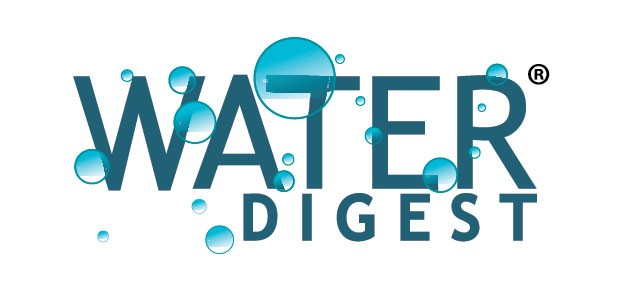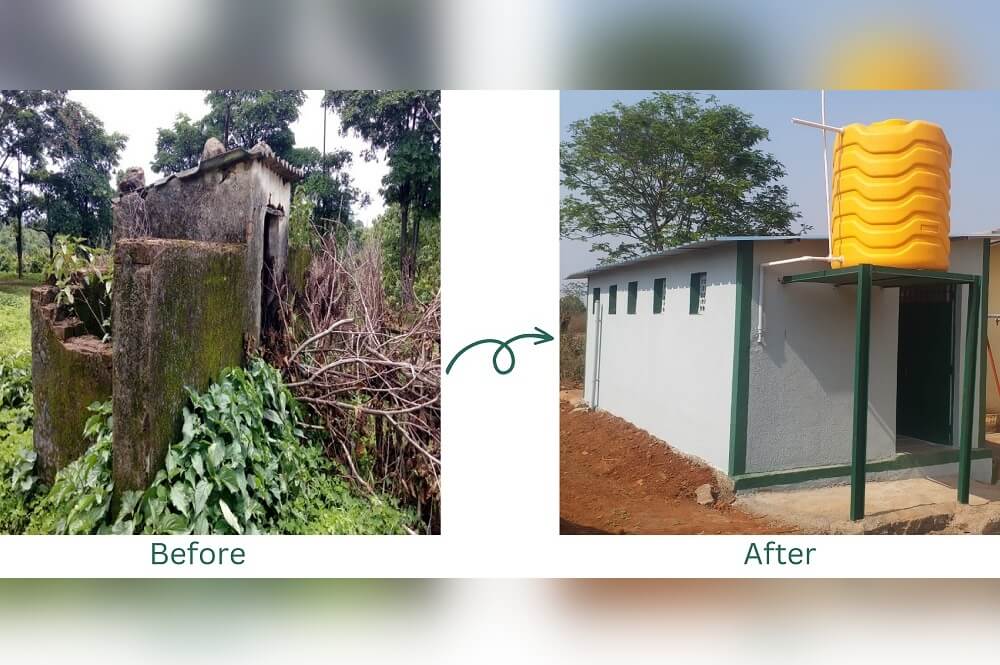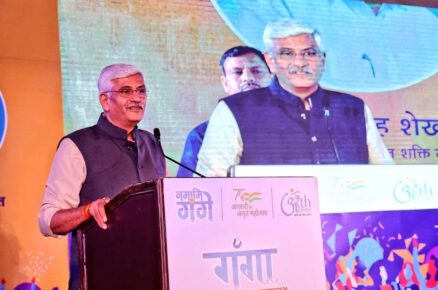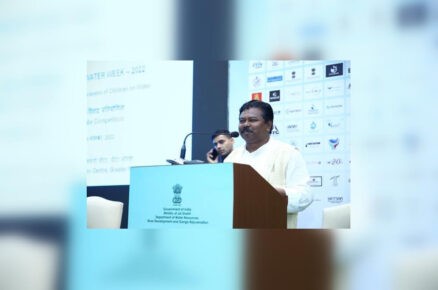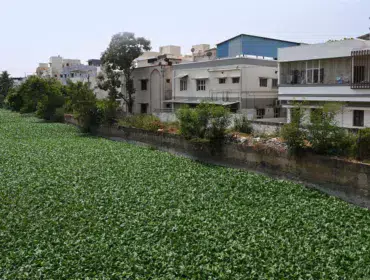By empowHER India
empowHER India is improving the sanitation conditions of upper primary schools by constructing adolescent-friendly toilets along with providing a 10-month hygiene education program.
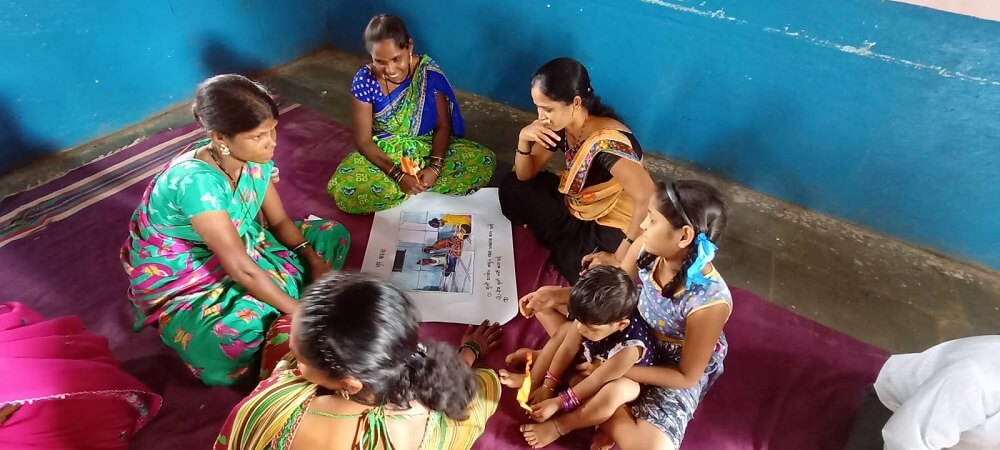
INTRODUCTION
The WaSH or School toilet construction and hygiene program is a 10-month hygiene program, available for parents and other school stakeholders in addition to being a dedicated hygiene program for Class II-VII students. empowHER India has successfully completed this wholesome program in six upper primary schools i.e. 16% out of the 38 schools that need urgent intervention. The intervention does not just mean more toilets, but creating the desire for children to use them from a young age. It inspires young children to use the toilets and take the responsibility for keeping them clean.
Many girls are unable to relieve themselves or address their menstrual hygiene needs in privacy at schools because the toilets are broken, not in working condition or are not adolescent-friendly. Girls need toilets to change their sanitary napkins, wash themselves, clean stains on their uniforms, etc. The girls are surrounded by fear, shame and health issues which often lead to dropping out of school. Beliefs such as blood released during menstruation is impure reinforce gender inequality that girls should not go to school during their period, leading to self-exclusion – further disempowering girls.
Villages cannot progress if girls are excluded from equal opportunity to work in the future by denying them access to education over something so trivial yet important like the availability of toilets in schools. For a tribal-rural adolescent girl, staying in school means much more than just education. It means protection against early marriage and an inevitable early pregnancy. Further, in rural areas, it is difficult to convince people to stop defecating or urinating in the open. Hence, this behaviour needs to be changed young i.e., at the school level. Changing attitudes in a repressive system requires a different approach.
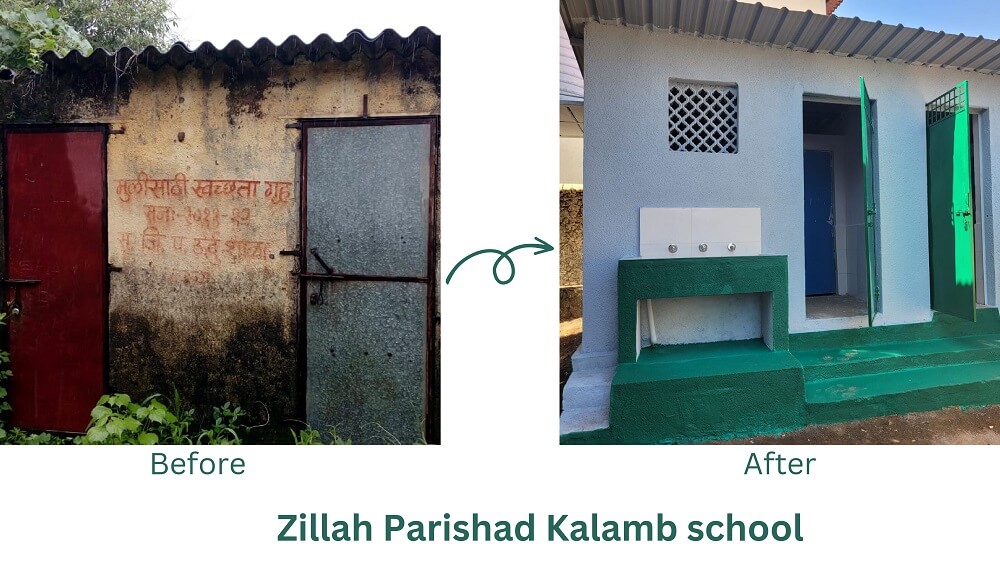
NEED ANALYSIS
Globally, one in three schools do not have adequate toilets, and 23% of schools have no toilets at all. A staggering 41% government schools in India do not have separate toilet facilities for girls. They either have no toilet facilities or have poor sanitation facilities i.e. no separate toilets for boys and girls, lack of water access, rodents and pest infestation, filthy and unpleasant toilets, and the infrastructure is not adolescent-friendly.
Often, due to the lack of toilets in schools, girls have to put off going to the restroom and run the risk of developing urinary tract infections. The onset of menarche often forces many girls to drop out of school or suffer self-ostracism for the duration of their menstrual cycle every month. Dirty surroundings reduce their optimism of coming to school and being involved enough to study. Dehydrating oneself to avoid going to the restroom is bad for a girl’s general health. Additionally, for girls, the onset of menstruation is an awkward time as they become more aware of their changing bodies. It is necessary that girls and boys have access to separate sanitation facilities within the school premises as they spend the majority of their time in school.
A survey was conducted by empowHER India across the villages of Karjat to understand the need for school toilet construction program and collected the following inputs:
• 28% of Maharashtra rural government schools do not have safe and clean access to toilet facilities for girls. This is below the National average of 41%
• 66% of schools in Raigad district do not have separate toilets for girls. Thus, denial of adolescent friendly toilets.
• Once girls started menstruating, many of them missed their classes or examinations leading to being removed from the school. Thus, causing an increase in gender inequality.
• Girls relieve themselves in open areas and are subjected to shame from strangers or assaulted by them.
• Higher risk of urinary tract and kidney stone issues.
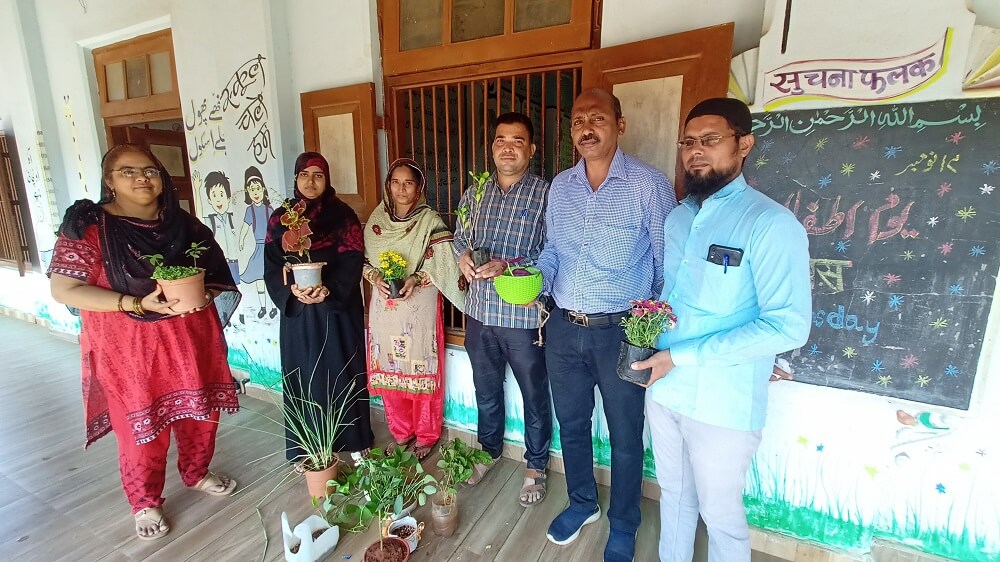
THE NEED FOR TOILETS IN UPPER PRIMARY SCHOOLS FOR ADOLESCENT GIRLS AND BOYS
It is important that a proper working toilet is available at the school premises so that young girls can safely manage their menstrual cycle and basic biological functions during school hours. With accessibility to toilets in school, girls no longer need to put themselves at risk of violence, or shame when trying to dispose of their menstrual waste in secluded places or under the cover of darkness. Access to safe sanitation is not only crucial for human health, environment, and creation of valuable resources, but it is also crucial for human dignity and to protect public health.
Schools play a crucial part in protecting a child’s future by creating a clean and safe learning environment. Upper Primary and Secondary schools educate children in the age range of 10 to 16 years- the age when girls and boys go through puberty and build their identity as individuals. Particularly for girls, this is the age when they begin menstruating and are at the greatest risk of dropping out. This is why, empowHER India is concentrating on ensuring that students studying in upper primary and secondary schools have access to sustainable, adolescent-friendly school toilets. By teaching children good hygiene habits, they are likely to inculcate it life-long and pass the knowledge of good sanitation hygiene behaviour on to their families and communities. Being able to use a clean school toilet gives a major uplift and positive feeling to students using it. Now more than ever, sanitation is the base of the success of any educational goal without which no other Sustainable Development Goal (SDG) can be fully achieved.
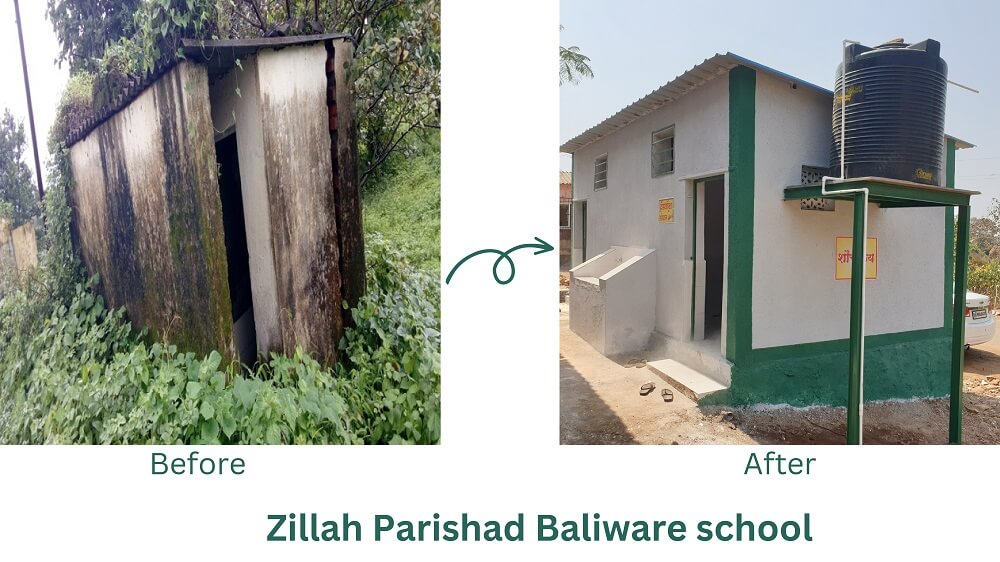
THE SOLUTION
To address this urgent need, empowHER India provides sanitation facilities through the construction process that is gender-specific (i.e. separate for boys and girls), sufficient for the students enrolled, child-friendly, adequate, well-equipped, well-maintained and culturally appropriate. Along with toilet construction, the program includes a 10-month hygiene program. The hygiene program is available for parents and other school stakeholders in addition to a dedicated hygiene program for students of Call II-VII.
Additionally, the aim is to build adolescent friendly toilets. The term can be defined as toilets built in accordance with the comfort of adolescent girls and ensured that all the safety provisions are available in the toilet.
Following are the requirements of an adolescent-friendly toilet:
• Easy-to-access toilets with good light and mechanism to lock doors.
• Availability of menstrual hygiene safe spaces (menstrual hygiene waste disposal options like dustbins, incinerators) for adolescent girls.
• Enough toilets for students separated by male and female sections.
• Hand washing stations equipped with soap and water that are placed near the toilets.
• A functioning source of water near or at the school.
• A hygiene education program to imbibe good sanitation practices at school and bring about positive behaviour change.
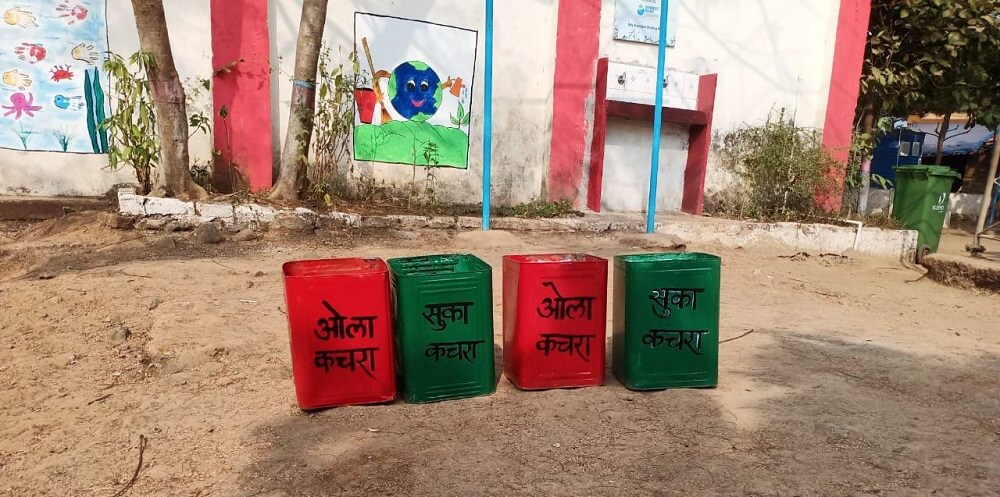
THE VISION OF THE PROGRAM
Universal sanitation coverage for all rural upper-primary schools in Karjat region.
Objectives:
• Availability of menstrual hygiene safe spaces (menstrual hygiene waste disposal options like dustbins, incinerators) for adolescent girls so that they continue their education.
• Enough toilets for students separated by male and female sections.
• Hand washing stations equipped with soap and water that are placed near the toilets.
• A hygiene education program to imbibe good sanitation practices at school and bring about positive behaviour change
• Sensitise parents to the needs of adolescent girls
• Community ownership by the school stakeholders, parents and students.
The primary beneficiaries of the program are children from rural upper primary government schools from Class II-VII. Their schools lack functional restrooms and hygiene facilities. The parents of these children are also a target group for the program.
Furthermore, the program also entails to work with the village stakeholders such as Gram Panchayat to create an awareness about the importance of adolescent friendly environment and being supportive of young empowered girls. ASHA, Anganwadi workers and government officials are also being contacted for the same.
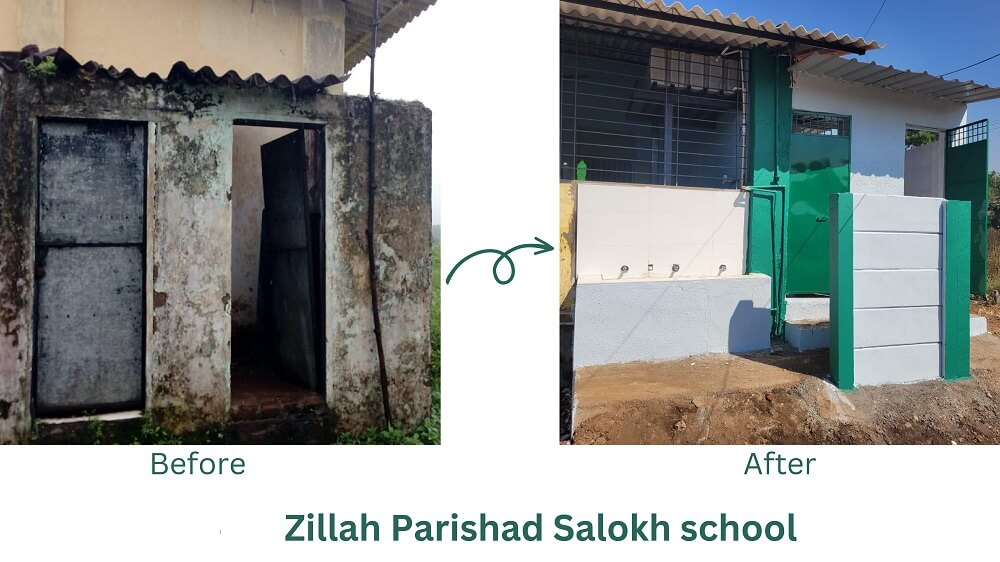
HYGIENE EDUCATION PROGRAM FOR PARENTS AND STUDENTS
A robust activity-based interactive session focused on creating positive behavioural change is conducted in the rural schools each month. It ensures that all beneficiaries understand the importance of using toilets and maintaining the structure in the school. A 10-month Hygiene Education Program is held separately for parent-teachers and students.
Engaging and fun activities are included in the sessions of the hygiene program. These activities ensure that a proper learning environment happens for both students and parents. Regular meetings are conducted with the parents and they are encouraged to involve in spreading awareness about sanitation and hygiene. The parents are also invited to participate in the school activity. Following are the sessions conducted:
1. Session Plan 1: I have a Dream…My Dream School
This activity helps children envision and draw the ideal school of their dreams which has good facilities, especially having hand wash and toilet facilities. It makes the students feel involved in the process of improving their own school which makes them want to come to their rural school more often.
2. Session Plan 2: Germs Off My Dands – Washing Hands with Soap
Introducing children to the concept of the correct way to wash their hands through a relay-race to prevent disease causing germs.
3. Session Plan 3: Personal Hygiene – Soap Making
Helping children design and create their own soaps which they will use throughout the school year. It provides a hands-on experience to students to understand the process of making soap.
4. Session Plan 4: Toilet Drill – Using the Toilet the Correct Way and Own My Space – Clean
Children are assisted in maintaining the freshly built or renovated school toilet by instilling the habit that cleaning is so much fun so that it does not feel like a chore even when they return home. In order to help them develop into more responsible adults, school children are taught to sweep and mop their classrooms, dust, and clean the corridors, stairs, doors, and windows, as well as the newly erected toilet.
5. Session Plan 5: My Squeaky-Clean School-I – Wall Painting of Toilet Inside and Outside
Here children use their artistic skills with their peers to make the school more inviting, fun and a safe place to be in. Colourful spaces look appealing to the eye and give children a reason to look forward to coming to school.
6. Session Plan 6: My Squeaky-Clean School-II – Dustbin Making and Cleanliness Drive
Students learn how to make their own dustbins and the segregation techniques which they will implement not only in school but will also carry the message home to their families, neighbours and community. Creating a habit from childhood, it is likely to stay until they are mature grown adults.
7. Session Plan 7: Clean Water and Diseases
Having clean water to drink is important to keep diseases at bay. Ensuring that the water and food stays clean and portable for human consumption is equally important to ensure that there is less school absenteeism.
8. Session Plan 8: Menstrual Hygiene and Growing Up
Accommodating the changes in the body with a toilet that suits the needs of adolescent boys and girls is a need in the rural village. Girls are given information on menstrual hygiene and care while boys are given information on growing up
9. Session Plan 9: Revision
10. Session Plan 10: Hygiene Carnival
It is a space where children showcase all the things that they have been doing from the past 10-months in school to the parents and other village stakeholders. It is an opportunity for the students to hone their leadership skills, entrepreneurial skills and communication skills while selling products related to sanitation and hygiene.
Every month, sessions with the students take place concurrently with sessions with the parents, teachers and other village stakeholders. These sessions are designed to make sure that the parent-teacher committee is engaged and active in order to support the children in achieving better pedagogical outcomes.
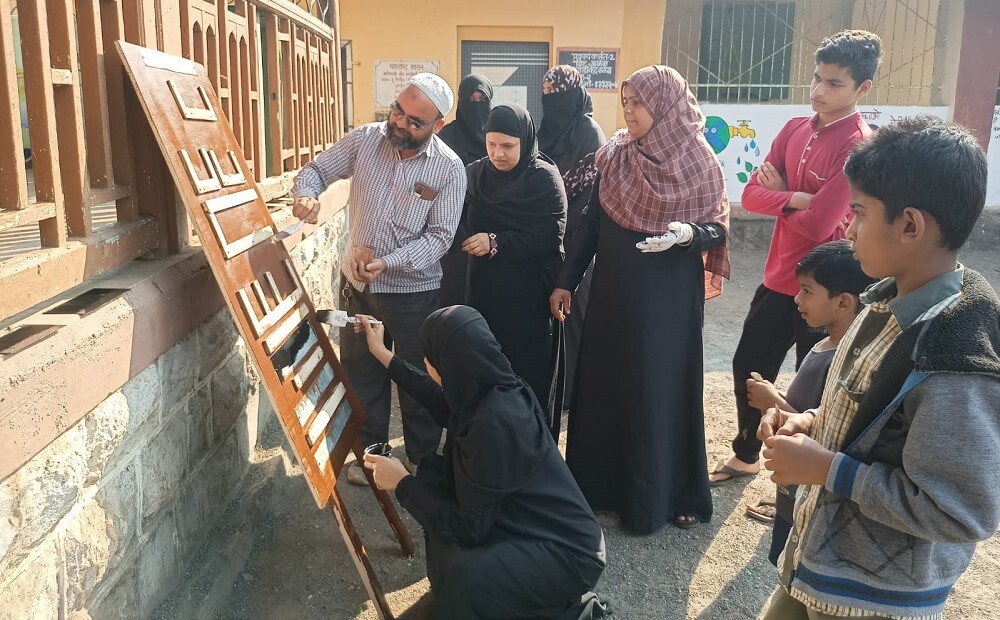
HOW IS THE HYGIENE EDUCATION PROGRAM DIFFERENT?
• It allows adolescent children to participate through fun activities- a participatory approach encourages active involvement in all the 10 months of the activity.
• Children get to reflect and engage in conversations and interactions that support learning and positive behaviour change.
• Situation analysis with awareness would enable children to respond to sanitation related issues in the real world.
• Presence of an active student leadership committee to ensure that the needs, grievances of the students are resolved by the parents, teachers and other stakeholders of the school.
• The parents and teachers are equally involved to improve the conditions of the school through a vision board, fulfilling one pre-decided goal in each month.
• It promotes a sense of fellowship among the parents and teachers.
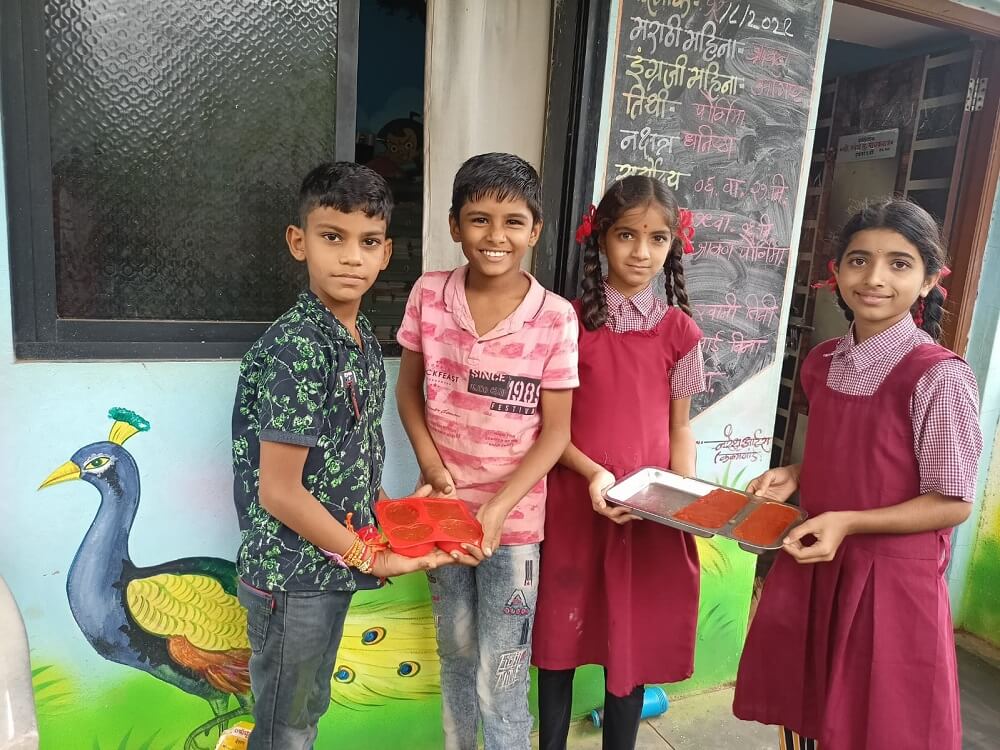
LINKAGES WITH SDGs
empowHER India’s work has linkages with multiple targets of Sustainable Development Goals summarised below:
• SDG 3: Good Health and Well-Being
Having toilets in school with access to water, adolescent friendly toilet structure and hygiene program can improve student attendance, health and cognitive development.
• SDG 4: Quality Education
Ensure inclusive and equitable quality education and promote lifelong learning opportunities for all. Making access to toilets in school will make education inclusive for adolescent girls to prevent them from dropping out or missing out on school. During the adolescence phase, it is critical to give students access to life skills to promote positive sanitation hygiene practices.
• SDG 5: Gender Equality
End all forms of discrimination against women and girls everywhere. In order to help their daughters stay in school and eventually pursue higher education and employment so that they can participate equally in society, it is important to end the culture of silence surrounding girls’ bodies. This is done by educating families, particularly men, about the sanitation needs of their young daughters as they enter puberty.
• SDG 10: Reduced Inequalities, and Ensuring No One is Left Behind
Having an adolescent friendly clean toilet promotes gender equality as it reduces the number of girls from dropping out during puberty.
ABOUT THE CONTRIBUTOR
empowHER India is an adolescent centric Non-Government Organisation conducting grassroots-level philanthropic work in Panvel and Karjat taluka of Maharashtra for 30 years. The NGO’s vision is to empower adolescent girls and women to live a life of dignity and equality. The goal is to impact the lives of 1 million girls and women by the year 2030.SETU is empowHER India’s flagship program, launched in the year 2020 in Karjat taluka. Its goal is to positively impact marginalised rural girls to face life’s challenges with confidence and combat social evils. In addition to the SETU program, empowHER India also works towards access to rural sanitation. Along with building adolescent-friendly school toilets, the school WaSH program includes a behaviour change communication component that engages students and other school stakeholders for long-term sustainability.
Reference:
1.https://www.unicef.org/stories/7-fast-facts-about-toilets
2.https://news.careers360.com/12000-government-schools-in-india-do-not-have-toilets-highest-in-telangana-govt-rajya-sabha-udise-education
